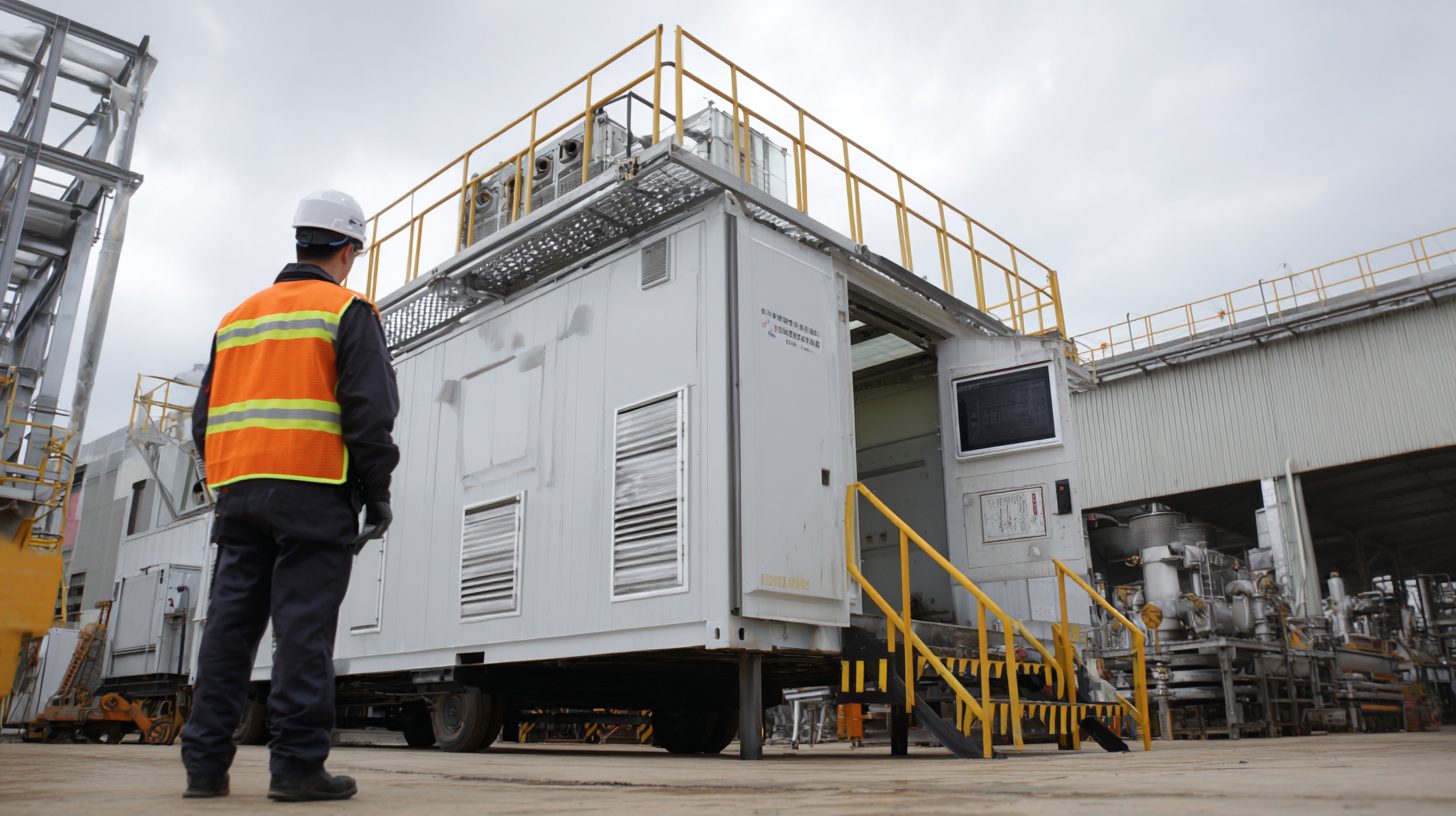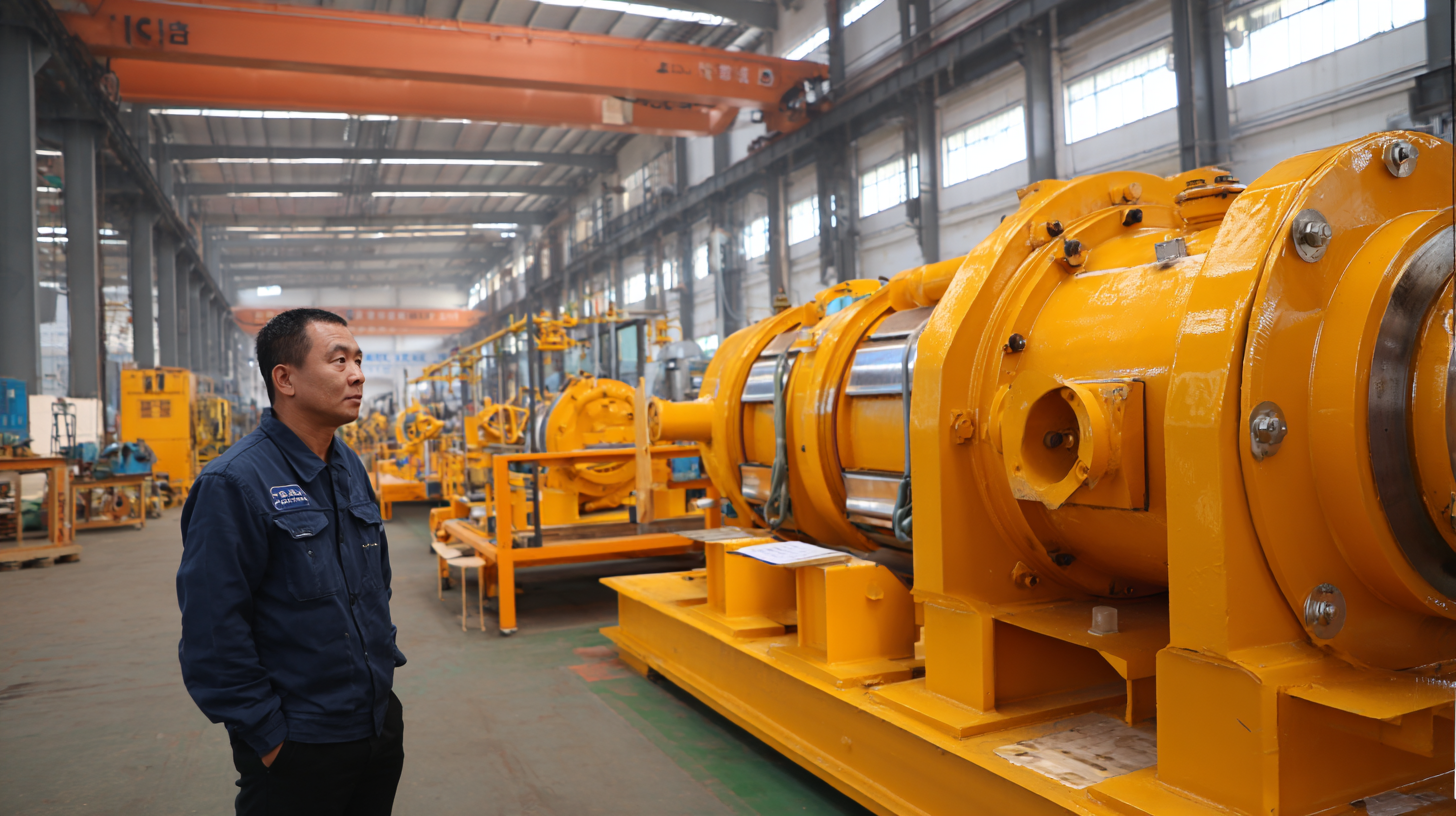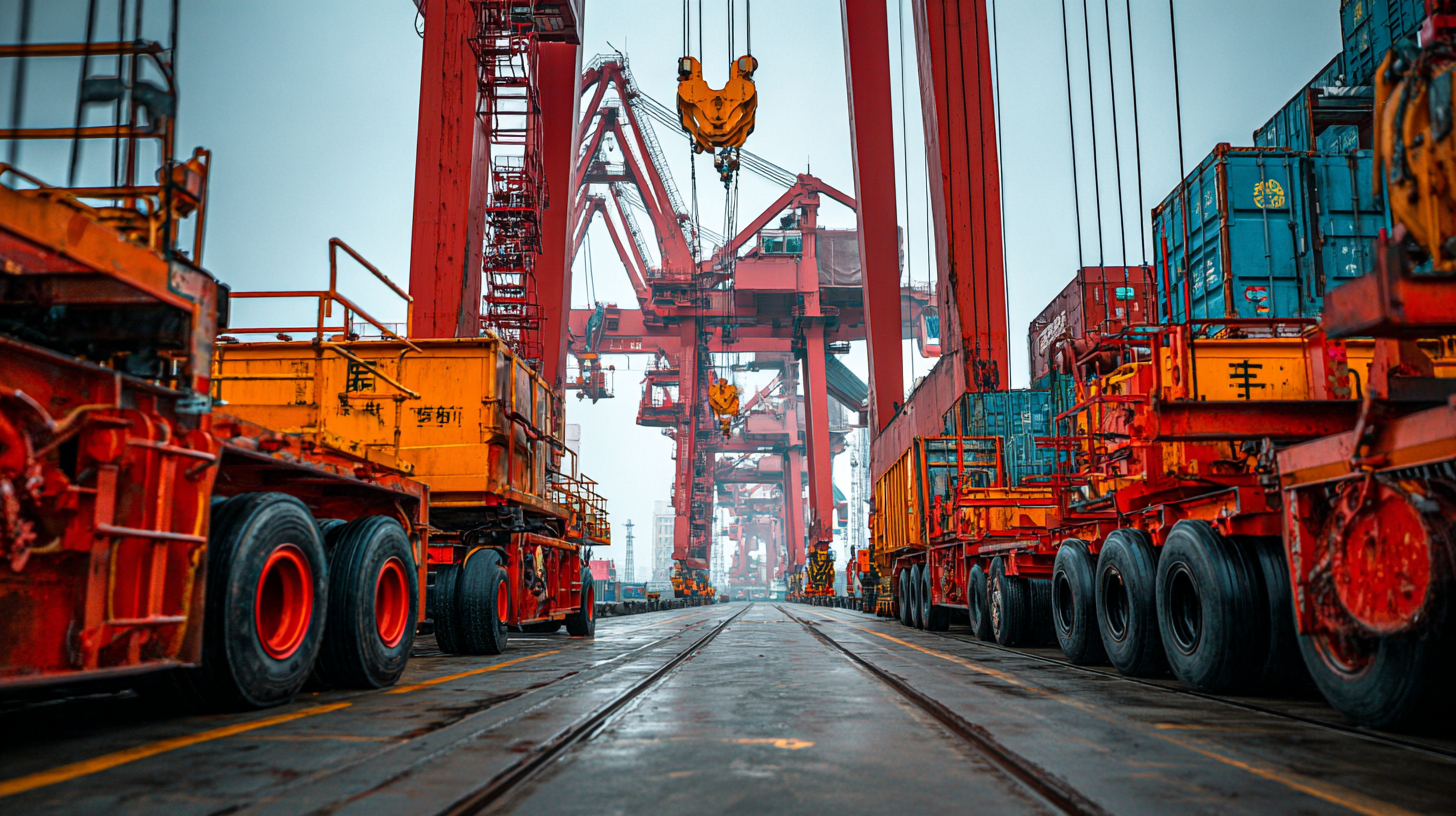Leading Global Confidence in Industrial Equipment Rental from Top Chinese Factories
As the global economy continues to evolve, the industrial equipment rental sector stands poised for significant transformation, driven largely by leading Chinese factories. By 2025, the market analysis indicates an increasing trend towards efficient and flexible renting solutions, addressing the growing demand for high-quality machinery without the burdens of ownership. This blog aims to explore the dynamics of industrial equipment rental, highlighting key players, innovative technologies, and successful case studies that illustrate the advantages of renting over buying. With a focus on China as a manufacturing powerhouse, we will delve into how these factories are shaping the future of this industry, providing insights into best practices and potential challenges ahead. As we navigate through various examples, readers will gain a comprehensive understanding of the industrial equipment rental landscape and its implications for businesses worldwide.

Identifying High-Quality Suppliers in the Industrial Equipment Rental Sector
Identifying high-quality suppliers in the industrial equipment rental sector is crucial for businesses looking to enhance productivity and ensure reliability. With the rapid growth of the industrial equipment rental market, especially led by top Chinese factories, it is essential to focus on key factors that distinguish exceptional suppliers. First, look for manufacturers that have a solid reputation and proven track record in the industry. Customer reviews and testimonials can provide valuable insight into the supplier's reliability and service quality.
Tip: When evaluating suppliers, request product demonstrations or trials to assess the quality and performance of the equipment. This firsthand experience allows you to understand better how the equipment meets your specific needs.
Additionally, assess the supplier's commitment to innovation and technology. A supplier that invests in modern manufacturing techniques and regularly updates their product line is more likely to offer superior equipment that meets the latest industry standards. Furthermore, consider their customer service and support capabilities, as ongoing assistance can significantly impact your operations.
Tip: Establish a shortlist of potential suppliers, and reach out to them with specific questions regarding their products, warranties, and after-sales support to gauge their responsiveness and expertise.
Leading Global Confidence in Industrial Equipment Rental from Top Chinese Factories
| Supplier Location | Equipment Type | Rental Rate (per day) | Quality Rating (1-5) | Delivery Time (days) |
|---|---|---|---|---|
| Beijing | Excavator | $150 | 4 | 5 |
| Shanghai | Forklift | $100 | 5 | 3 |
| Guangzhou | Bulldozer | $200 | 3 | 6 |
| Shenzhen | Crane | $300 | 5 | 4 |
| Hangzhou | Generator | $75 | 4 | 2 |
Key Characteristics of Reliable Chinese Manufacturing Partners
When navigating the industrial equipment rental landscape, reliability is paramount. A recent report by Allied Market Research indicates that the global equipment rental market is projected to reach $200 billion by 2025, with a significant portion of this growth driven by the increasing demand for dependable manufacturing partners. Leading Chinese factories, known for their innovative capabilities and cost-effectiveness, have emerged as key players.

One of the essential characteristics of reliable Chinese manufacturing partners is their adherence to international quality standards. According to the China National Bureau of Statistics, over 70% of Chinese industrial manufacturers have adopted ISO certifications, ensuring that their products meet rigorous quality benchmarks. Furthermore, leveraging advanced technologies such as IoT and AI allows these factories to enhance operational efficiency, thus reducing downtime and improving service delivery for equipment rental companies.
Moreover, the ability to swiftly adapt to market demands sets top Chinese manufacturers apart. The China General Equipment Manufacturing Association highlights that firms with agile manufacturing systems can lead to a 30% increase in responsiveness to customer needs, a critical factor in today’s fast-paced rental market. As industry stakeholders prioritize partnerships with reliable manufacturers, these traits are vital to success in a competitive global marketplace.
Essential Checklist for Evaluating Potential Suppliers
When it comes to renting industrial equipment, choosing the right supplier is crucial for ensuring operational efficiency and reliability. An essential checklist for evaluating potential suppliers can greatly assist organizations in making informed decisions. First, assess the supplier’s track record and reputation in the industry. Look for customer reviews and testimonials, as well as their history of meeting delivery schedules and maintaining equipment quality. A supplier with a solid reputation is less likely to compromise on service standards.
Next, consider the range of equipment offered by the supplier. It’s important to determine whether their inventory aligns with your specific needs. A reputable supplier should provide a diverse selection of modern, well-maintained equipment to cater to various industrial applications. Additionally, verify the maintenance and support services they offer; timely maintenance is vital to avoid downtime.
Lastly, evaluate the pricing structure and contractual terms. Transparency in pricing and flexible rental agreements can help build a trustworthy relationship, ensuring that you receive value for your investment while minimizing unforeseen costs.
Best Practices for Building Strong Supplier Relationships
Building strong supplier relationships is crucial for companies aiming to enhance their supply chain resilience in the industrial equipment rental sector. According to recent insights, engaging suppliers as partners fosters a transparent relationship, which can significantly minimize supply chain risks. A report indicates that companies with established collaborative practices see a 30% reduction in lead time variability. This is vital in ensuring efficient inventory management and production scheduling, which directly impacts service delivery in the industrial equipment rental market.
Moreover, adopting best practices for sourcing can further strengthen these relationships. Supplier intelligence solutions emphasize the importance of ongoing communication and collaboration with suppliers. Implementing a robust Supplier Relationship Management (SRM) platform has shown to improve procurement operations and foster deeper partnerships. By balancing cost savings with quality through strategic sourcing, companies can drive value that transcends mere financial metrics, leading to more resilient and agile supply chains for the future. Engaging in a multi-directional relationship approach enhances overall supply chain performance, showcasing that strong supplier relationships are not just advantageous but essential for success in this competitive industry.
Global Confidence in Industrial Equipment Rental
Leveraging Technology to Assess Supplier Capabilities and Reliability
In the ever-evolving landscape of industrial equipment rental, the ability to assess supplier capabilities and reliability is paramount. According to a recent report by MarketsandMarkets, the global equipment rental market is projected to reach USD 122.5 billion by 2026, growing at a compound annual growth rate (CAGR) of 4.4%. This growth underscores the increasing reliance on rental solutions, making it essential for businesses to leverage technology in evaluating supplier performance.
Technological advancements, such as data analytics and machine learning, enable organizations to conduct more accurate assessments of their suppliers. A McKinsey study highlights that companies using advanced analytics in procurement can improve supplier selection efficiency by up to 30%. With real-time data access, businesses can analyze historical performance metrics, delivery timelines, and equipment maintenance records to gauge a supplier's reliability. In an industry where trust and quality are essential, leveraging technology not only enhances decision-making processes but also fosters stronger partnerships between rental companies and leading Chinese manufacturers.
